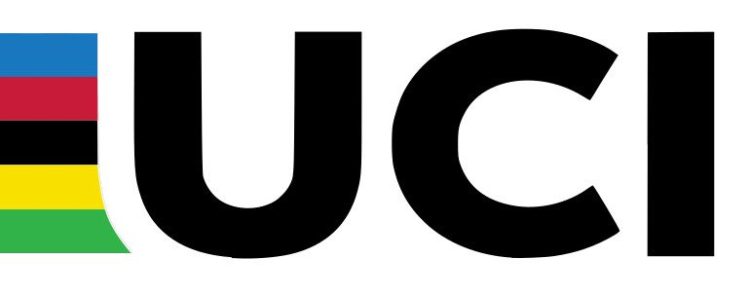Too Much of a Good Thing: Avoiding Cycling-Related Hormone and Mineral Deficiencies
By Christopher Schwenker
The Hidden Risks of Hormone and Nutrient Depletion in Cyclists—Understanding Testosterone, Iron, and Thyroid Imbalances
The list of cycling superlatives, such as superior physical fitness, improved mental wellness, and lengthening longevity, is longer than your arm. Yet, too much of anything is sometimes not good, and cycling is no different.
Cycling and endurance training push your body to its limits, but sometimes, exceeding those limits too often can lead to hormonal imbalances or nutrient deficiencies. Issues like low testosterone, iron depletion, and thyroid hormone imbalances can sneak up on cyclists, taking a toll on performance and overall well-being.
Here’s what you need to know to identify the potential challenges and how to stay on top of them.
Testosterone Levels Drop in Cyclists: Identify the Causes and Mitigate the Risk Factors
Testosterone, produced primarily in the testes for men and ovaries for women, is vital for muscle mass, bone density, red blood cell production, sex drive, and mood regulation. Intense endurance training can lower testosterone levels, especially in men, due to increased cortisol (a stress hormone), oxidative stress, and inflammation.
Research indicates that endurance-trained males often have lower resting testosterone levels than untrained males, potentially disrupting reproduction and performance.
Testosterone is essential for building muscle, maintaining energy, and regulating mood. But for cyclists, especially those logging high training volumes, testosterone can take a hit.
What Causes Testosterone to Drop in Cyclists?
- Stress and Cortisol: When you train hard, your body releases cortisol to handle the stress. Over time, excessive cortisol production can suppress testosterone levels, leaving you feeling drained and less resilient.
- Long-Duration Training: Endurance workouts demand a lot from your body, sometimes tipping the balance away from optimal hormone production.
- Chronic Inflammation: Intense training can increase oxidative stress and inflammation, further impacting testosterone.
Signs of Cycling-Related Low Testosterone
The symptoms of low testosterone include:
- Fatigue and sluggish recovery
- Loss of muscle mass
- Reduced sex drive
- Irritability or mood swings
In addition, low testosterone levels can increase the risk of osteoporosis, cardiovascular disease, and metabolic disorders such as insulin resistance and type 2 diabetes.
How to Keep Testosterone Levels Healthy in Cyclists
- Incorporate Strength Training: Resistance workouts can boost testosterone and balance out the effects of endurance sessions.
- Prioritize Sleep: Poor sleep disrupts hormone production, so aim for 7–9 hours of quality rest. Check out this blog post for more ways you can Sleep to Win.
- Optimize Your Diet: Focus on foods rich in zinc, vitamin D, and healthy fats to support testosterone levels. Learn about the Risks of Under-fueling in this blog post.
- Reduce Alcohol and Stress: Both can interfere with hormone regulation, so manage them carefully.
Iron: The Secret Ingredient for Cycling Endurance
Iron powers your red blood cells, helping them deliver oxygen to your muscles. Without enough iron, fatigue and poor performance are inevitable.
Iron is crucial for producing hemoglobin, which carries oxygen to the body’s tissues. Iron depletion can lead to anemia, affecting performance and health. Studies have found that iron depletion is prevalent among top-level athletes, with 22% of participants exhibiting iron depletion.
Why Cyclists Risk Iron Depletion
- High Oxygen Demand: Cycling ramps up your body’s need for oxygen, which increases red blood cell turnover—and, with it, iron loss.
- Dietary Challenges: Some cyclists don’t get enough iron-rich foods, particularly vegetarians or those with low energy intake.
- Inflammation and Hepcidin: After intense training, your body releases a hormone called hepcidin, which research shows blocks iron absorption for hours.
- Iron Loss Through Sweat: Yes, you can literally sweat out your iron stores, especially during long, hot rides.
Symptoms of Iron Deficiency Caused by Cycling
Low iron symptoms include:
- Persistent fatigue
- Weakness and pale skin
- Declining endurance
- Breathlessness
- Frequent illness
In addition, severe iron depletion can lead to iron deficiency anemia, which can cause other symptoms such as dizziness, headaches, and rapid or irregular resting heart rate.
How to Boost Low Iron Levels Due to Cycling
- Eat Iron-Rich Foods: Red meat, fish, beans, lentils, and leafy greens are excellent sources.
- Combine with Vitamin C: Pairing iron-rich foods with citrus fruits or bell peppers improves absorption.
- Monitor Your Levels: Regular blood tests can help you catch low iron early.
Tip: Avoid tea and coffee with meals—they can block iron absorption.
Be Careful with Supplements: Iron supplements can cause side effects and lead to a serious health condition called hemochromatosis, so consult a doctor before starting them.
Thyroid Hormones: Your Body’s Energy Regulators
Your thyroid controls metabolism, energy, body temperature, and stamina—all things cyclists rely on. However, long bouts of intense training can interfere with thyroid hormone production, causing depletion and leading to low energy and slower recovery.
Why Thyroid Hormones Can Take a Hit in Cyclists
- Overtraining: Constantly pushing your body with little rest can disrupt your thyroid’s ability to produce enough hormones.
- Nutrient Deficiencies: Iodine, zinc, and selenium are crucial for thyroid function, and heavy training can decrease their levels in the body.
Warning Signs of Cycling-Related Thyroid Issues
Symptoms of low thyroid hormone include:
- Fatigue and weight gain
- Muscle weakness
- Poor stamina and ineffective recovery
- Depression
In addition to these symptoms, thyroid hormone depletion can also lead to long-term consequences such as an increased risk of heart disease, a weakened immune system, and an increased risk of bone fracture.
Supporting The Cyclist’s Thyroid
- Get Plenty of Rest: Balance training with recovery to allow your body to recalibrate.
- Fuel Your Body: A diet rich in healthy carbs, protein, and fats helps maintain thyroid health.
- Consider Supplements: If you’re deficient in iodine, zinc, or selenium, talk to a doctor about supplementation.
Bridge the Gap to Cycling-Related Hormone Deficiencies
For cyclists, staying healthy isn’t just about training hard—it’s about training smart. Keeping your testosterone, iron, and thyroid hormones in check will help you ride stronger and recover faster.
Key Takeaways:
- Strengthen Your Body off the Bike: Add resistance training to support testosterone levels and overall performance.
- Fuel Properly: Eat a balanced diet with plenty of nutrients, including iron and thyroid-supporting minerals.
- Prioritize Rest: Recovery is training and is as essential as the miles you log in the saddle.
- Check-In with a Doctor: Regular blood tests for testosterone, ferritin (iron), and thyroid hormones can catch imbalances early. By staying proactive, you’ll avoid the hidden pitfalls that can sideline even the strongest cyclists. Ride smart, listen to your body, and fuel it with everything it needs to perform at its peak.
About the Author
After over twenty years as director of his private physical therapy practice, Chris stepped away to pursue his passion for virtual cycling and writing. He founded TheZommunique.com, the leading source of independent cycling esports journalism, is a frequent contributor to Cycling Weekly, Cycling News, and road.cc, and co-hosts The Virtual Velo Podcast. He cycled 3,900 miles across the US in 2022 to support his virtual cycling non-profit, The DIRT Dad Fund.






















